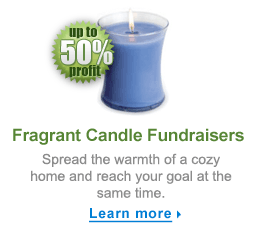 I’d like to welcome back Kirsten Bullock to Step By Step Fundraising. Kirsten is a CFRE consultant, trainer and coach who works with leaders of non-profit organizations and ministries to bring professionalism, excellence and effectiveness to their board and fundraising efforts.
I’d like to welcome back Kirsten Bullock to Step By Step Fundraising. Kirsten is a CFRE consultant, trainer and coach who works with leaders of non-profit organizations and ministries to bring professionalism, excellence and effectiveness to their board and fundraising efforts.
She earned her designation as a Certified Fund Raising Executive in 2002. Kirsten is currently serving as president elect of the Association for Fundraising Professionals Greater Louisville Chapter. She is an AFP Master Trainer, compiles ‘Kirsten’s Fundraising Headlines’ Blog, authors the ‘Growing Your Donors’ blog and is a contributor for SOFII (The Showcase of Fundraising Innovation and Inspiration).
Kirsten holds a Bachelor’s Degree in Social Work and a Master’s of Business Administration. When not working to equip and empower people in the nonprofit sector, Kirsten sculpts, is attempting to learn to speak Danish and enjoys living in the Highlands in Louisville, Kentucky.
Why Don’t They Care?
I remember thinking, ‘why don’t they care?’ as I was working towards my social work degree. My classmates would come back from their internships and share about people living in poverty, in houses with gaping holes in the roof, ceiling and floor. Learning tips from those who had been in the field a long time. Things like: make sure you go early in the day before the trouble makers wake up. Avoid sitting on anything with cushions (to avoid lice and bugs). If you must sit on a cushion, sit as far forward as possible.
And all around me there were people who seemed to just not care. Have you ever gotten frustrated because others just don’t seem to care about the work you are doing?
Let me help you with a little tip: it’s not that they don’t care. It’s more typical that they just don’t know. And here’s a bonus tip: you can educate them – in fact, it’s your job to educate them.
Not in a way that’s abrasive or condescending. Not by accusing or yelling or thinking less of them. But, by simply sharing your story in a way that helps them catch up.
As part of your ‘case statement’ you should include some information about the community needs that are being addressed as a result of your work. This will include some background information about how the issue started becoming a concern, what impact it is having in your community and statistics to back up what you’ve said. This helps build you and your organization as the experts and it provides back-up information to help educate people who do not have personal experience with the issue you address. In addition, this provides information for your advocates to share and should help simplify your messaging.
Here’s an overview of what your case statement should include:
1) Needs Statement – talk about the needs of the community you’re serving (this is NOT about your organization)
2) Program Information – share about how will your program address the needs outlined in the first section and how will it operate
3) Agency Information – provide information about why your organization is best suited to address this issue (this could be expertise that the organization has or the leadership of the organization has
4) Cost – provide an overview of what it will cost to implement this program
Those are just a few thoughts to help you get started. Would you like more information about case statements and building excitement around what you do? Click here to learn more about a free webinar I’m offering on August 16th at 7pm.







